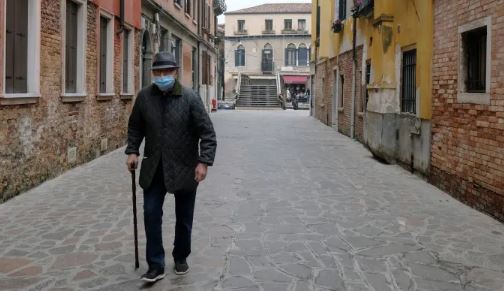When you’re thinking about stopping the spread of coronavirus, you are also helping protect those who are most vulnerable. This includes those who are at greater risk, the elderly.
According to various data especially from the World Health Organization (WHO), older people and those with chronic medical conditions are at a higher risk of getting severe illness from COVID-19. This said, there are many things we can do to prepare and protect ourselves.

Image source: The Financial Times (https://www.ft.com/content/a9b2eea2-6791-11ea-800d-da70cff6e4d3)
If you live with an elderly or have care giving responsibilities over your elderly family members, these are the measures that you have to take.
Tips for Protecting the Elderly Against the Coronavirus
-
Be well-stocked with medication and other supplies.
Your elderly loved ones may have chronic conditions or are required maintenance medication. Make sure that you have enough supplies of this in stock to last you several weeks. Make sure you have other medical supplies on hand, as elderly people may have different requirements due to various conditions.
-
Stay sanitized.
Wash your hands with soap and water for at least 20 seconds. This is the best way to protect yourself from the virus. If you don’t have access to soap and water, carry with you at least 60% alcohol or alcohol-based hand sanitizer. Also, make sure your home and other spaces are clean and wiped with disinfectant regularly.
-
Adjust to your household needs and situations.
Different households may have different situations. There are households that may have elderly and kids in one roof. To help keep the elderly from getting sick, avoid sharing personal items like water bottles, utensils, towels, and food. If possible, choose a room in your home for the sick household members.
-
Be in touch with your healthcare providers.
Talk to your elderly loved ones’ health care provider to find out if there are any other measures you can take to protect them at this time. Discuss how you as a household can protect against the virus by taking all the necessary precautionary and safety measures to prevent the spread of infection.
-
Have a caregiver plan.
Caregivers and care recipients, as well as the whole household, should have a caregiving plan on how to cope with this situation. The whole household should all work together to make sure they don’t expose each other to COVID-19 or other infection. Monitor the situation, always be alert, and prepare what needs to be done for various health and emergency scenarios.
-
Stay updated.
Things happen at a fast pace at this time. The situation in all parts of the world are changing rapidly as nations and communities scramble to be on top of the situation. Be aware of the essential, up-to-date information in your own community. Keep in touch of trusted authorities. Furthermore, check trusted information sources and be responsible as well in spreading only accurate and trusted information.
With the right planning and preparation, as well as a healthy, positive mindset, you can take part in helping reduce the spread of the coronavirus in your own community. You are also ensuring that your elderly loved ones or care recipients are being protected from coronavirus since they are most vulnerable.
Recent Comments